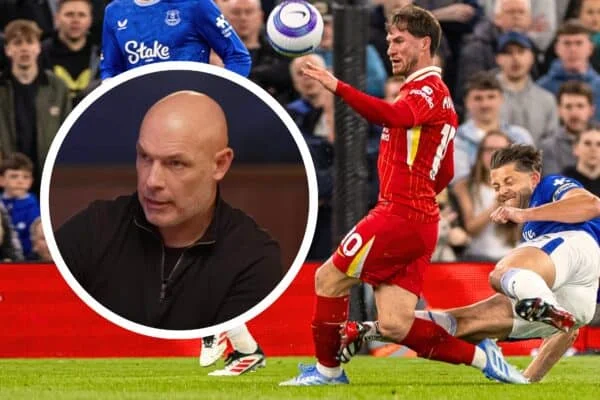
Was a Red Card Really Overlooked? The Controversial Moments from the Merseyside Derby
In a captivating episode of football officiating, Howard Webb, the chief of PGMOL, recently addressed how a major error was made during the Merseyside derby between Liverpool and Everton. The spotlight fell on Everton's James Tarkowski whose challenge on Liverpool's Alexis Mac Allister sparked outrage and debate among fans and analysts alike.
During the intense match held on April 2, Tarkowski’s tackle was deemed a yellow card offence by referee Sam Barrott despite its risky implications. Webb, speaking on the Match Officials Mic'd Up programme, later admitted that this was a mistake and that the incident constituted a red card challenge.

Webb's statements highlighted the critical balance match officials must maintain when it comes to player safety and the application of the laws of the game. He noted, “It’s a red card challenge; it’s an error on the part of the match officials not to send James Tarkowski off. The use of excessive force in the challenge endangers the safety of the opponent and should have attracted a harsher punishment.”
This incident raises essential questions about the consistency and effectiveness of officiating in football, which often comes under scrutiny. Webb’s candid acknowledgment of the error is a significant departure from the usual reticence displayed by referees who seldom openly discuss or admit mistakes.
Further complicating matters, this dramatic encounter also featured Diogo Jota's winning goal for Liverpool, scored amidst controversies surrounding another incident involving Luis Diaz, who was offside at the moment. Webb defended the goal by explaining that simply being in an offside position does not equate to interference in play. Referee Paul Tierney, in conversation with VAR officials, reinforced this by stating, “He makes no challenge whatsoever. There's no offence.”

Despite Webb affirming that the goal was valid according to the laws of the game, questions linger about the implications for defensive players when attackers remain in offside positions without active involvement. Former player Gary Neville stated that there is an evident need to reassess the rules that can seem to disproportionately favour attacking players, thus placing defenders at a disadvantage.
In this light, the discussions coming out of this particular match provide not only a window into the complexities of officiating but also a reminder of the ever-evolving landscape of football laws.
As the Premier League season progresses, fans, players, and analysts alike are left wondering whether current officiating standards will continue to create such high levels of scrutiny and debate. With player safety highlighted by Webb’s comments, a call for clearer guidelines and better training for officials seems imperative.
What are your thoughts on the challenges posed by the current officiating methods? Is there a need for further transparency and reform in how the laws of the game are applied? We invite you to share your views and engage in this essential conversation.